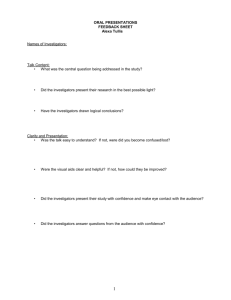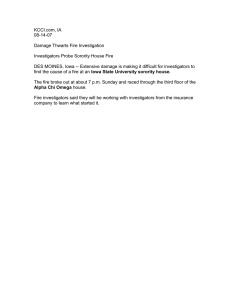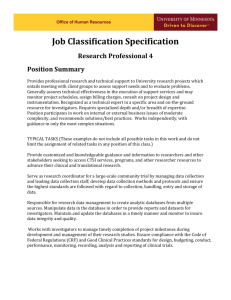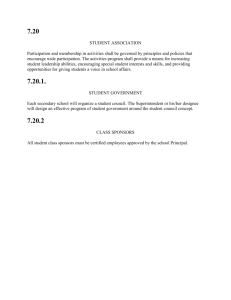S h a r i n g C...
advertisement
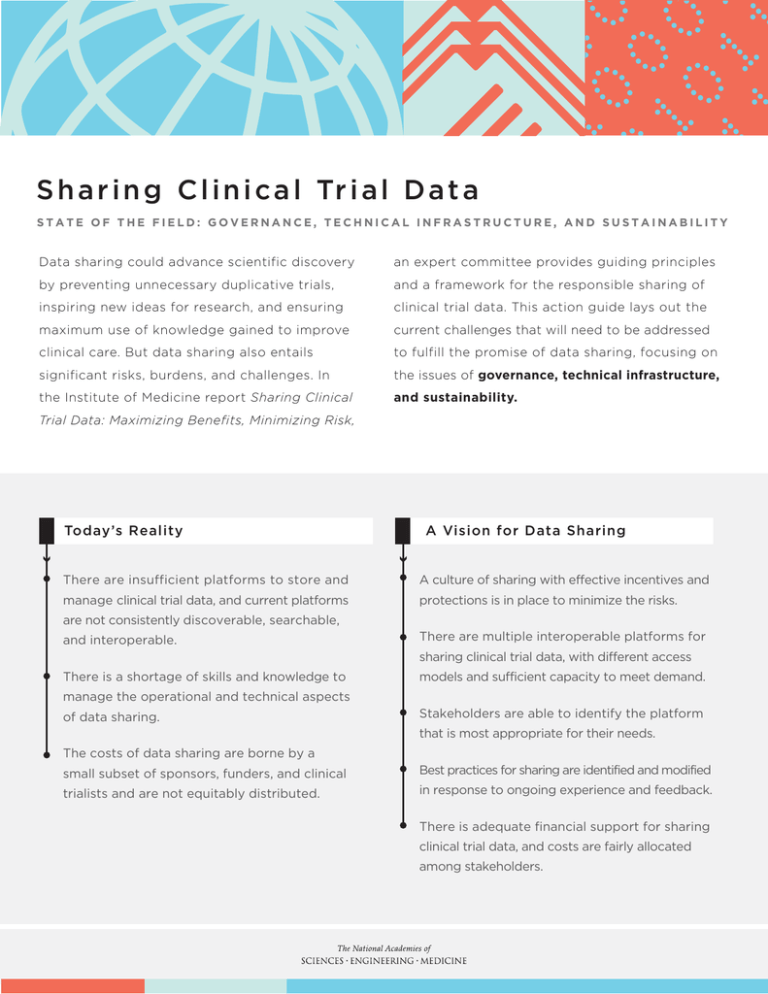
S h a r i n g C l i n i c a l Tr i a l D a t a STATE OF THE FIELD: GOVERNANCE, TECHNICAL INFRASTRUCTURE, AND SUSTAINABILITY Data sharing could advance scientific discovery an expert committee provides guiding principles by preventing unnecessary duplicative trials, and a framework for the responsible sharing of inspiring new ideas for research, and ensuring clinical trial data. This action guide lays out the maximum use of knowledge gained to improve current challenges that will need to be addressed clinical care. But data sharing also entails to fulfill the promise of data sharing, focusing on significant risks, burdens, and challenges. In the issues of governance, technical infrastructure, the Institute of Medicine report Sharing Clinical and sustainability. Trial Data: Maximizing Benefits, Minimizing Risk, Today’s Reality A Vision for Data Sharing There are insufficient platforms to store and A culture of sharing with effective incentives and manage clinical trial data, and current platforms protections is in place to minimize the risks. are not consistently discoverable, searchable, and interoperable. There are multiple interoperable platforms for sharing clinical trial data, with different access There is a shortage of skills and knowledge to models and sufficient capacity to meet demand. manage the operational and technical aspects of data sharing. Stakeholders are able to identify the platform that is most appropriate for their needs. The costs of data sharing are borne by a small subset of sponsors, funders, and clinical Best practices for sharing are identified and modified trialists and are not equitably distributed. in response to ongoing experience and feedback. There is adequate financial support for sharing clinical trial data, and costs are fairly allocated among stakeholders. Governance Technical Infrastructure Governance models for determining access to clinical trial data Many investigators are not in a place to store and manage data from need to balance several goals: protecting the privacy of research their trials for an extended period of time, while other data holders want participants, avoiding undue burdens on secondary users seeking to maintain physical ownership of their data. To encourage data sharing, access, avoiding undue harms to investigators and sponsors that there need to be both places where investigators can easily store data share data, and enhancing public trust in the data sharing after a trial has been completed, as well as a data-sharing infrastructure, process. The committee endorses open access (to the public able to manage data access, under a variety of access models. with no controls or conditions) for sharing summary-level clinical trial results (e.g., from ClinicalTrials.gov). In some cases, no or few Further, just because data are accessible does not mean they are usable. controls on sharing other types of clinical trial data may be Data are usable only if an investigator can search and retrieve them, can preferred when acceptable to all stakeholders involved, including make sense of them, and can analyze them within a single trial or can trial participants, sponsors, and investigators. The committee combine them across multiple trials. The technical infrastructure for data recommends implementing a number of operational strategies sharing needs to accommodate these aims. for mitigating the risks and enhancing the benefits of sharing sensitive clinical trial data (e.g., individual participant data). Workforce Needs An adequate workforce trained in the operational and technical aspects of data sharing needs to be developed. There is a growing Committee Recommendation on Data Access gap between the supply of trained quantitative research scientists Holders of clinical trial data should mitigate the risks and people knowledgeable about biomedical informatics—including and enhance the benefits of sharing sensitive clinical data models, ontologies, and standard vocabularies—and the growing trial data by using the following operational strategies: demand for those skills. Training for the sharing of data needs to be Employing data use agreements part of the overall mission of funders of research training programs. Employing appropriate techniques for protecting privacy, in addition to de-identification and data security Designating an independent panel, including members of the lay public, to review data requests, where applicable Making the process of gaining access to clinical Sustainability trial data transparent Learning by experience by collecting outcomes of data sharing policies, procedures, and technical approaches Data sharing costs include Infrastructure and administration costs (e.g., storage and curation, informed consent review). Standardization costs, including de-identification and making data understandable to others. To read the full report and to view additional report resources, please visit: Human resources to build and maintain the infrastructure, provide access, and respond to queries. Opportunity costs with not carrying out new research. nas.edu/datasharing For data sharing to be sustainable, its costs will need to be equitably distributed across both data generators and users.
